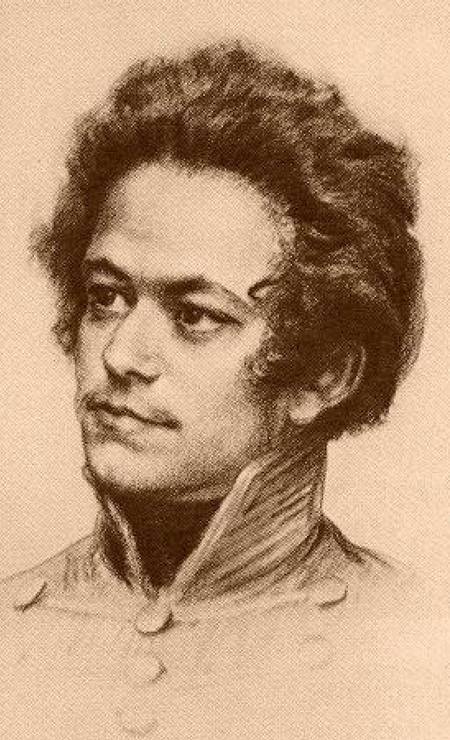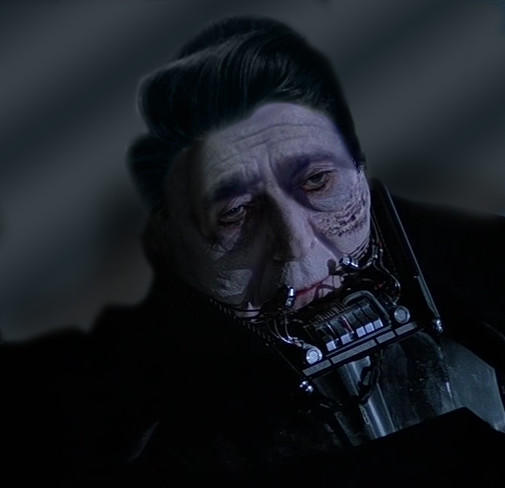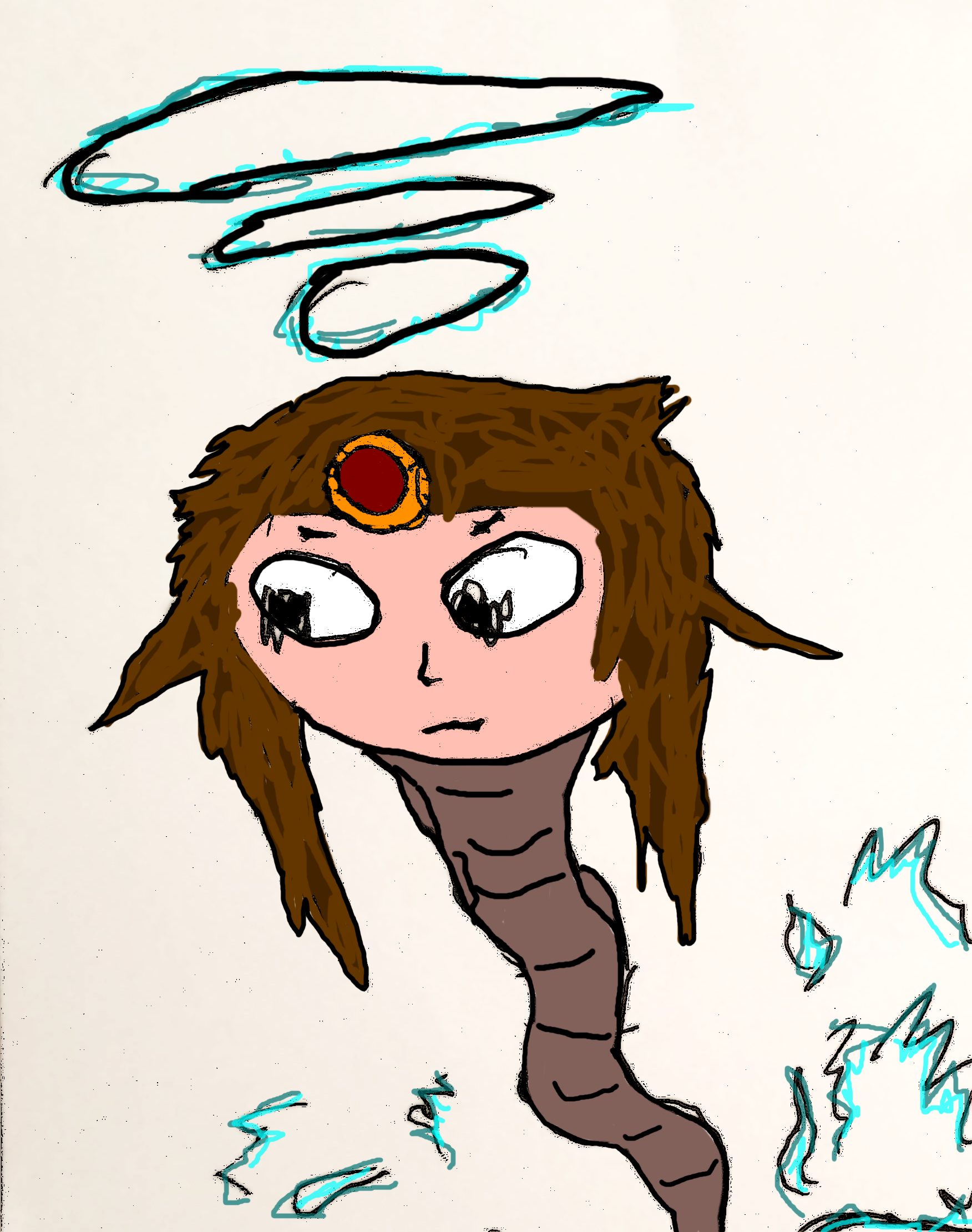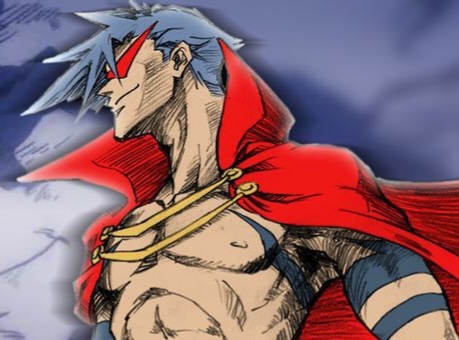OK so reverse order timeline of events like this that I'm aware of
- Laura Bailey being harassed for something a character she voiced in The Last of Us Part 2 did
- Anna Gunn being harassed because people misguidedly and misogynistically didn't like Skyler White (taking this back to 2008)
- Ahmed Best and the kid who played young Anakin being harassed by Star Wars fans after the Phantom Menace came out, taking us back to 1999. You could argue that these two weren't about the character's actions but rather the quality of the performances/product so its a bit difference but its still the same overall problem.
- I just happened to get curious about what TV Tropes had to say about All in the Family because my roomate was watching it. By weird coincidence, because I had commented about the first three when this news was posted in a discord server already, I learned it goes back to the 70s because an actor who appears in one episode and does something incredibly evil got hate mail over it. So yeah, this shit has been going on forever
But like. WHAT the fuck is going on with that. What is going on in brains that can't separate actor from character? Is it just needing an outlet.
I think there's some discussion to be had about this shit getting worse because of increased atomization, COVID, social media giving people easy access to celebrities, and a more media obsessed population in general. But it apparently goes all the way back to All in the Family so what is going on?
And I don't think that its a minor problem either! Ahmed Best and the small child that played Anakin have shared some pretty harrowing stuff. And like, this was a reality show but I've discussed before how upset the story of Hana Kimura is to me as a fan (if you look her up, suicide cw).
My best guess is that people with very little emotional intelligence have emotions over the media they consume and need to let it out on someone as an outlet? Combined with just, poor education leading to poor media literacy?
But yeah this has always confused me lmao. I truly wish to understand the confusing actions of humans.
I watched an interview with a screen actor once, talking about playing a stage villain and the vibe of negativity that can be felt coming from an audience. they related a story of another actor playing Iago in Othello in a production in Texas, when this guy stood up in the audience, pulled out a gun, and shot them.
the wound was not life threatening and the shooter was clearly disturbed, but the actor who was shot admitted later that it was the most flattering personal review of his talent that he ever received.
I remember the director's commentary on The Wire mentioning that some of the local actors they'd hired got shit in the local scene for things their characters did, so that's another example of it.
I also read somewhere that the actor who played Bubbles was offered heroin in the street because he looked like he needed it, and he felt like that was his "street Oscar"
I think that got mentioned in the director's commentary too. I remember The Wire's director's commentary track being pretty good as such things go, because it had a lot of stuff like that alongside stories about the actual people some of the characters were based on.
The Skyler White thing is just completely based on misogyny, the whole time Skyler was trying to save her husband from being an absolute piece of shit and killing himself and possibly even his whole family in the process. Men see past all that and go "aaah woman annoying, probably on her period the whole time
 "
"Honestly I never understood the hate she got; Walter was working with literal psychopaths and she had (two?) children to keep safe. Did people really just see themselves in Walter to this extent and considered her a nag? She was the most sane person in the family and the only thing she did wrong was not cutting Walter out completely.
Also all this aside, it's unbelievable that people are seriously getting upset with an actress over the events in a TV show.
her scenes were boring family shit for a long time instead of cool drug guy shit. Similar happened with iris west on that flash show, but the hate was 100% magnified because women were getting in the way of the cool part.
But the boring parts is what made the cool drug guy shit interesting
This is why AI-powered slop machines that make content will never be as interesting or compelling as things written by writers and performed by actors: people think they want nonstop action, but storytelling that's like that is flat and uninteresting.
If you've ever played D&D you know that being unable to separate the actions of a character from the person portraying that character is a disease afflicting the brains of, like, most Americans at least
This kind of lack of separation between character and actor makes more sense to me, though. Those are improv characters portrayed by an individual making spur-of-the-moment choices, so getting aggravated with the choices your friend is making for their character doesn't seem totally unreasonable. The friend is in direct control of the character.
Getting mad at an actor for portraying a part written entirely by somebody else, directed by somebody else, costumed by somebody else - that's unreasonable. The actor is not in control of the character.
People (often bourgeois people in this case) want an escape from the troubles of the real world, so they lose themselves in art. When that art reminds them of the real world, they get pissed off.
It happened to me at the beginning of covid. I got really into Babylon Berlin. Then, spoiler, one of the main characters died. I had developed a parasocial relationship with this character, so I was shocked and devastated. I didn’t realize how attached I was until it happened. Then, one or two episodes later, they managed to bring the character back to life.
This might explain why blatantly communist art isn’t that popular and why g*mers have meltdowns over pronouns, women, and the existence of Black people. Bourgeois people want an escape from the teeming masses who are defeating them everywhere. So they lose themselves in art (and are often the only ones with the time and money to enjoy it). They don’t want a reminder in that art of how their time is running out.
There are many, many videos of people trying out VR for the first time and having very visceral reactions to scary scenarios like zombies or walking on a plank 30 stories up in the air. They know it's not real when they put on the headset, but there is a technical threshold upon which the brain unconsciously registers incoming visual information as "real". This is called Presence and it's what makes VR so interesting, and potentially powerful. Over time, other areas of your brain override the physical behavior one might exhibit reflexively in those scenarios, but your heart rate, pupil dilation, and galvanic skin response will still betray the fact that your body is unconsciously responding to a scenario you consciously know is not real.
When you watch a movie/show and are having emotional responses to images on a screen, your unconscious is still doing the same thing. Despite television not reaching the threshold necessary for Presence that VR accomplishes, in many ways it still is working on your unconscious mind as if you're looking through a window. The temperance you exhibit in controlling these behavior is not an automatic indicator of "Free Will", but years of learned behavior internally competing with your reflexive behaviors.
We can keep working this concept backwards from video, to audio, to books, to still images, and statues. The entire concept of fandom, cosplay, etc, is merely a socially accepted compromise for people working through their internalization of art that has had an involuntary emotional impact on them.
As we become encouraged more and more by society to be more selfish, more reactive is it any wonder then that there are people in this world who lose that battle of temperance and attack the focus of their emotional responses?
Thank you for coming to my Ted talk.
Nah, this is absolutely not anything new at all. I've heard of this phenomenon happening to every actor who has ever played a cartoonishly evil antagonist in Brazilian novelas for as long as I've been alive. A lot of people simply don't have much media literacy and cannot establish this layer of separation between actor and character. I suppose what's different today is that people feel more comfortably being vocal about their shitty opinions and harassing innocent people online.
Is that media literacy though? They're not reading the show's message wrong, they're completely failing to process reality.
People have known there's a separation between actor and character since the dawn of storytelling when we were still killing each other with sticks and rocks. It's like... A worse than dog-brained comprehension level - if I wear a scary mask and approach my dogs, they're not so sure, when I take the mask off they're like 'ohhh it's you!!!' - even they're able to make some sort of distinction.
Then again, perhaps it is media literacy in the sense that they don't realise an actor acts, on behalf of the writer and director, on behalf of the production company, and so on. But really? Maybe in very poor very rural countries, but anywhere with TV - people beyond a certain age know that there's an actor and a director. I'd say people have a much better understanding of that dynamic now more than ever - you only have to look at Pro Wrestling for example, where 50 years ago people would physically attack the bad guy given the opportunity because the felt it was real. Even in the late 80s and 90s people were often tricked by moments, wondering whether rival company WCW was really invading WWF. Nowadays, everyone but the kids are in on it.
I think it's willful ignorance in the pursuit of personal catharsis. G*mers are savvy enough to know that Rose is acting for Rian Johnson, who is directing for Kathleen Kennedy, who is owned by Disney. They just want a place to displace their anger (and like you say feel powerful in relative anonymity behind a screen).
Its better than GoT, at the very least post-season 4 GoT
I guess I’m not really make any aspersions about the perceived quality of the show. It’s just with the way GoT ended.
After being so amazing at first, then ending abruptly and terribly—the idea of watching a spin-off series feels a little bit like going on a date with a wild and amazing woman, only to wake up in tub full of ice with two missing kidneys. Then, after an arduous, miraculous recovery asking if she has a sister.
House of the dragon is good. Maybe it’s my distance from the original hype around GoT and the fact that I’ve read fire and blood, but the show is good
Its a rare instance of an adaption being better than the source material. In large part because GRRM is looped in, and the source material was in-universe history.
yeah it's way better than late got, surprisingly decent show
Jack Gleeson
And the sad thing about this is that the kid is apparently a fucking angel irl lol.
Billy D Williams had to justify Lando's actions to fans for the longest time
"My best guess is that people with very little emotional intelligence have emotions over the media they consume and need to let it out on someone as an outlet? Combined with just, poor education leading to poor media literacy?"
This and a literal million other things. These shows are seen by millions of people. It would be interesting to do a study (google prolly knows) on the reason people felt compelled to engage in that behavior.
This is like Linda Blair being harassed for her role in the Exorcist. People really be that dumb.
It's psychotic that people are seriously harassing real life people for things their characters are doing. Legitimately speaking, would they prefer if scripts tiptoed around such characters and simply made them act irrationally and in support of say for example Walter White? Perhaps they'd rather the character talk to a blank spot and everyone pretend there's someone there, except these same losers would probably then start trying to email the ether.
I think it depends. In the case of this Game of Thrones example - those people commenting strike me as having an awareness that it's a character. One person even addresses his character rather than him. Though he might be taking it to be harassing, I think it's an expression of what you'd call 'heat' in pro-wrestling. It's good for business. They're recognising his character work (and the writing of the show). I don't think any of those people mean what they say harmfully. I think it's all quite tongue in cheek.
I think your other examples are just willful ignorance in the pursuit of personal catharsis. G*mers are savvy enough to know that Rose is acting for Rian Johnson, who is directing for Kathleen Kennedy, who is owned by Disney. They just want a place to displace their anger (and like you say feel powerful in relative anonymity behind a screen). They're weird nerds looking to vent misogyny in defense of their obsession with either star wars or the culture wars in general. It's pure anger and hatred. It's especially prevalent in a world where the peoples power has been reduced, and where most interactions for a lot of people happen online.














